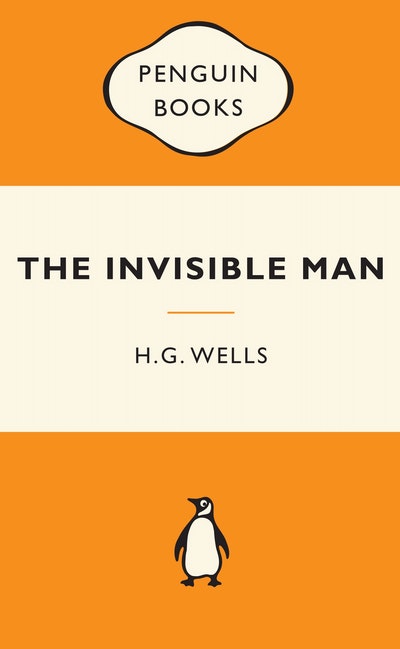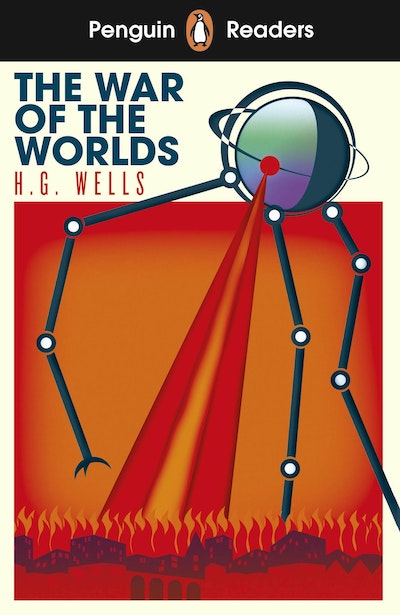[]
- Published: 20 April 2005
- ISBN: 9780141441122
- Imprint: Penguin Classics
- Format: Paperback
- Pages: 320
- RRP: $26.99
Categories:
A Modern Utopia
Formats & editions
Buy from…
A compelling blend of philosophical discussion and imaginative narrative
While walking in the Swiss Alps, two English travellers fall into a space-warp, and suddenly find themselves in another world. In many ways the same as our own - even down to the characters that inhabit it - this new planet is still somehow radically different, for the two walkers are now upon a Utopian Earth controlled by a single World Government. Here, as they soon learn, all share a common language, there is sexual, economic and racial equality, and society is ruled by socialist ideals enforced by an austere, voluntary elite: the 'Samurai'. But what will the Utopians make of these new visitors from a less perfect world?
- Published: 20 April 2005
- ISBN: 9780141441122
- Imprint: Penguin Classics
- Format: Paperback
- Pages: 320
- RRP: $26.99
Categories:
Other books in the series
The Complete Fables
Aesop
A Dead Man's Memoir (A Theatrical Novel)
Mikhail Bulgakov
A Dog's Heart
Mikhail Bulgakov
The Man Who Was Thursday
G. K. Chesterton
The Black Tulip
Alexandre Dumas
The Lady of the Camellias
Alexandre Dumas fils
The Man in the Iron Mask
Alexandre Dumas
The Three Musketeers
Alexandre Dumas
Faust, Part I
Goethe
Faust, Part II
Goethe
Selected Poetry
Goethe Johann Wolfgang Von
The Nibelungenlied
Hatto A T
The Complete Odes and Epodes
Horace
The Garden Party and Other Stories
Katherine Mansfield
The Aeneid
Virgil
Species of Spaces and Other Pieces
Georges Perec
The Age of Alexander
Plutarch
Fall Of The Roman Republic
Plutarch
The Makers of Rome
Plutarch
On Sparta
Plutarch
The Rise And Fall of Athens
Plutarch
The Rise of Rome
Plutarch
Rome in Crisis
Plutarch
Man and Superman
George Bernard Shaw
Saint Joan
George Bernard Shaw
Botchan
Natsume Soseki
Kusamakura
Natsume Soseki
The Charterhouse of Parma
Stendhal
Love
Stendhal
The Red and the Black
Stendhal
Agricola and Germania
Tacitus
Annals
Tacitus
The Annals of Imperial Rome
Tacitus
Selected Poems
Rabindranath Tagore
Military Dispatches
The Duke Of Wellington
Around the World in Eighty Days
Jules Verne
Journey to the Centre of the Earth
Jules Verne
Twenty Thousand Leagues Under the Sea
Jules Verne
Treatise On Toleration
Voltaire
About the author
English novelist, journalist, sociologist, and historian, whose science fiction stories have been filmed many times. WELLS’ best known works are THE TIME MACHINE, one of the first modern science fiction stories, THE INVISIBLE MAN, and THE WAR OF THE WORLDS. Wells wrote over a hundred of books, about fifty of them novels.
H.G. Wells was born in Bromley, Kent, in 1866. After an education repeatedly interrupted by his family’s financial problems, he eventually found work as a teacher at a succession of schools, where he began to write his first stories.
Wells became a prolific writer with a diverse output, of which the famous works are his science fiction novels. These are some of the earliest and most influential examples of the genre, and include classics such as The Time Machine and The War of the Worlds. Most of his books very well-received, and had a huge influence on many younger writers, including George Orwell and Isaac Asimov. Wells also wrote many popular non-fiction books, and used his writing to support the wide range of political and social causes in which he had an interest, although these became increasingly eccentric towards the end of his life.
Twice-married, Wells had many affairs, including a ten-year liaison with Rebecca West that produced a son. He died in London in 1946.





























































































































































































































































































































































































































































































































































































































































































































































































































